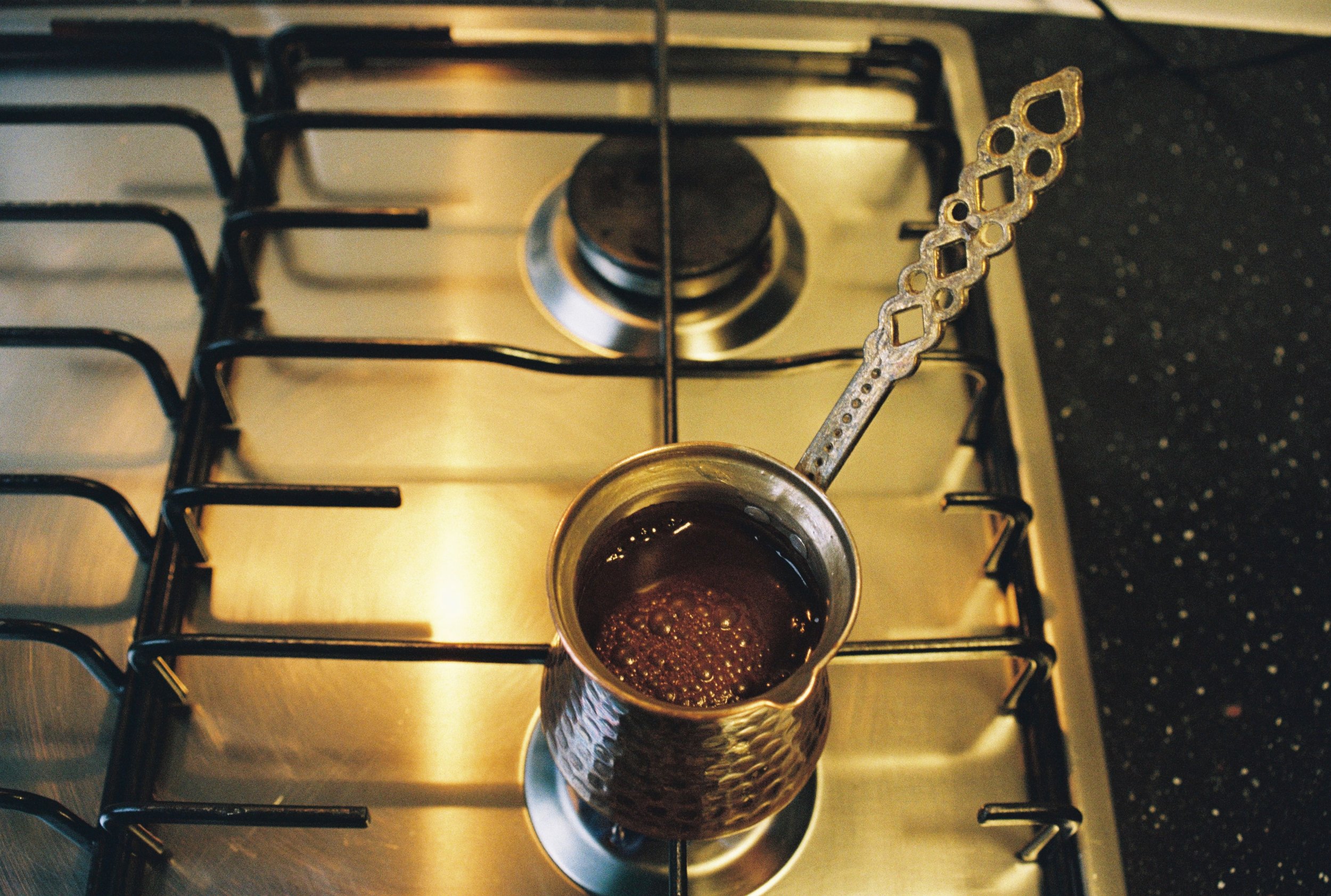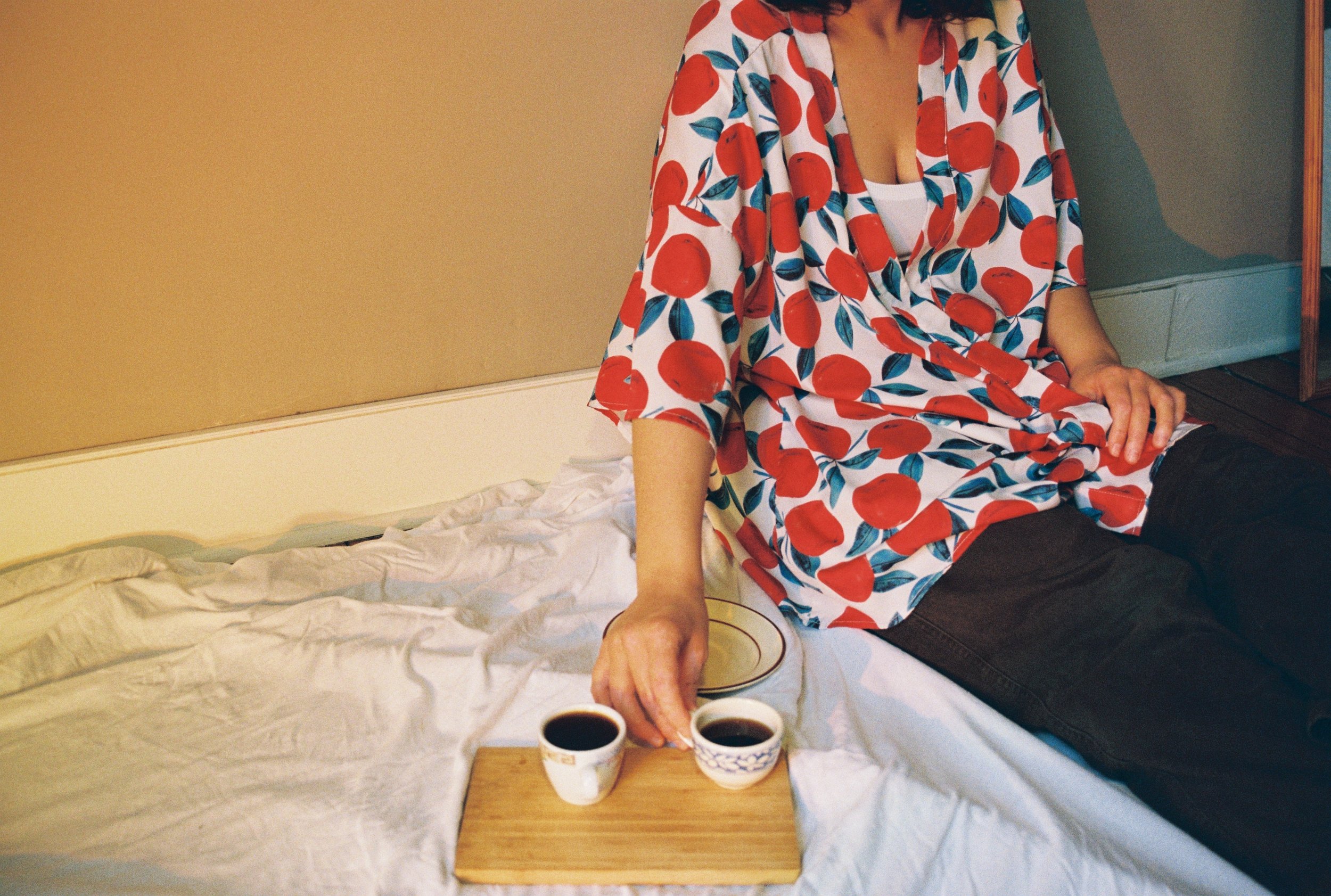
This piece is a reflection of Oska’s (she) emotions after one year of moving away from Batumi, Georgia:
I was feeling so many emotions all at once that, now, when I look back on those days, everything feels blurry. Blurry might not even be the right word - it’s more like I was swallowed up by this overwhelming wave of feelings. Before I left, I thought things would be simpler. I believed I understood reality, but everything changed the moment I said goodbye to the life I knew, my people, and my sense of security. It was like starting over from a blank page. And that blank page began with, “I am Mariam Osadze, and I want to seek international asylum from Belgium.”
I’ve always been afraid of something for as long as I can remember. If you added up all my fears, you’d see a common thread, and that thread is loneliness.
Perhaps the most painful, yet inevitable, part of migration is that the life
you lived for so many years, your everyday routine, slowly fades away.
As an asylum seeker, it’s hard not to live in constant worry. The question of what tomorrow will bring me. What response will come from the state authorities? Will this one decision determine everything? Did I make my case clear enough? Did I convey just how important it is for me to stay here? I wake up with these questions nearly every morning and It’s hard to focus on anything else when my mind is constantly wandering, and it’s even harder not to feel irritated. Sometimes, I even feel ashamed that I can’t handle my daily life and the emotions that come with it.







I know that, compared to many others, I’m going through this process relatively easily. But honestly, I don’t know how people gather the strength to keep fighting against a system that seems so oppressive. How do you live in a place where there are no mechanisms to protect you?
Back in Georgia, if someone had asked me what home meant to me, I would have said, "Tbilisi." The place where I spent almost the last 10 years of my life.. Even though I never felt entirely independent there, it was where I found my footing and became the person I am today. But now that I’m far away from Georgia, knowing I won’t see it for a long time, I think of Batumi. My greenish-blue eight-floor building (now turned into nine), the soy ice cream, the sound of the Mullah, the smell of the sea - those are the things that fill my mind when I think of home. They’re part of me, part of who I am - a person of the sea.
The sea has always been there, present in my memory, within me. I remember standing on the balcony, seeing the waves crash against the shore. Now, when I think of home, I miss the sea the most. I dream about it often, sometimes calm, sometimes stormy, but I love it in every form. I know it might seem strange to someone who doesn’t share this love for the sea, but for me, it’s boundless. It’s taught me what unconditional love feels like.
Even now, when I reflect about myself and my identity, my thoughts return to Batumi. Batumi, where I was someone’s neighbor, friend, daughter, sister. All of these relationships were naturally built, and shaped over the years. These are the stories that brought me here, that made me who I am. And being far from home has only made me realize how deeply I love my country and how proud I am to be Georgian.
Last week, I got the news - Belgium granted me refugee status. I don’t know if I can ever fully explain what those six months were like, but for the first time in a while, I feel hope - tangible hope for the future. It felt like I was struggling to breathe, and now I can finally exhale.
In Georgia, my mornings often started with Turkish coffee - "Sumbata." I still miss the aroma and taste of that coffee. In the Adjara region, where I grew up, coffee fortune-telling is part of the culture. This ritual brings people together - friends, family, neighbors. After drinking the coffee, the cup would be turned upside down, letting the grounds settle into patterns. Some see it as fun, while others find deeper meaning in the symbols left behind. My mother, for instance, always had a strong belief in these readings. The house we live in Batumi was chosen by my mother after a coffee fortune-teller said it would bring her happiness.
This is the first time I’m receiving a package from Georgia, and when my mom asked what I wanted, the first thing I said wa "Sumbata" coffee. This has always been, and still is, a ritual for me. Since my life in Belgium, I started sharing it with a friend, someone who has become an essential part of this tradition. He’s the one who does the reading for me, and while I don’t always believe in what he sees, there’s a part of me that listens closely, hoping to find a hint of comfort.
The truth is, this ritual has been a source of comfort throughout my life.
It’s never just about fortune-telling, but the act of slowing down and connecting.
My friend and I turn to this little ceremony, not necessarily because we believe the coffee will reveal the future, but because in that quiet moment, we feel a little less lost, a little more at peace.




This project is supported by the Council of Europe through the European Youth Foundation.
The content reflects solely the author's perspective, and the funding organisation bear no responsibility for its usage.

